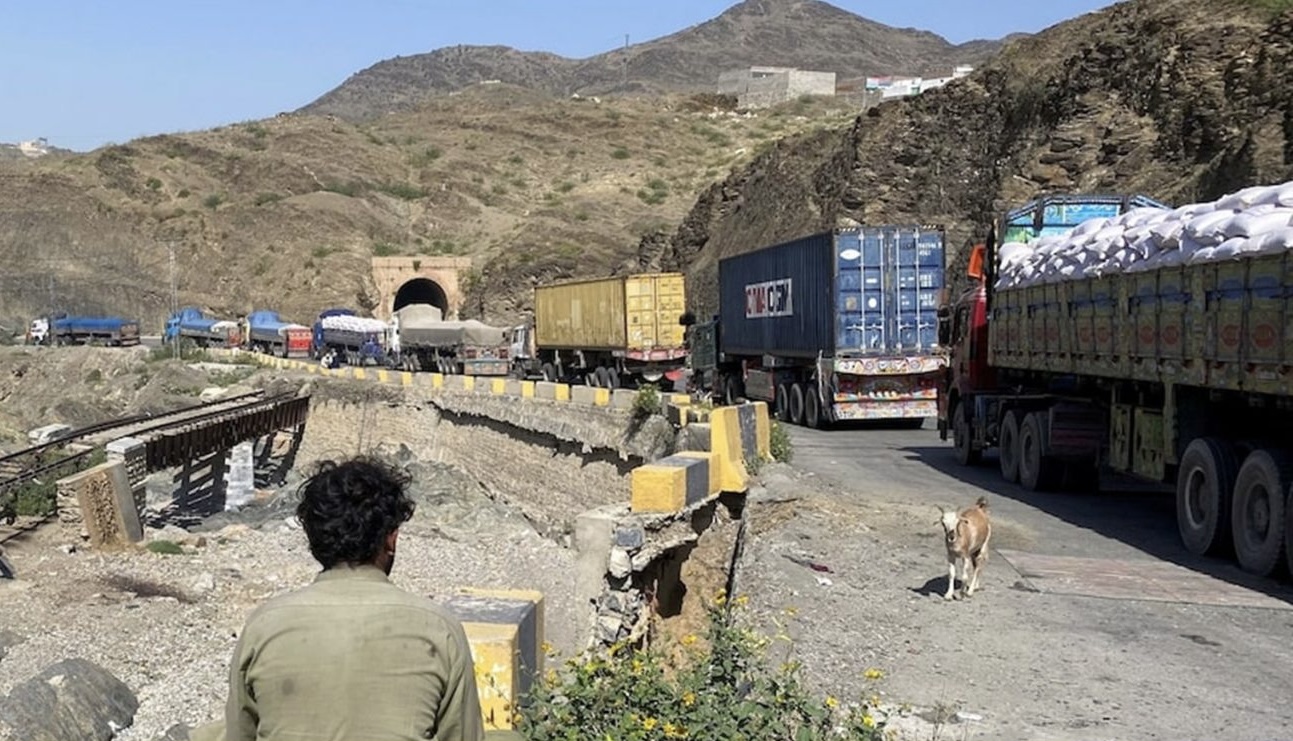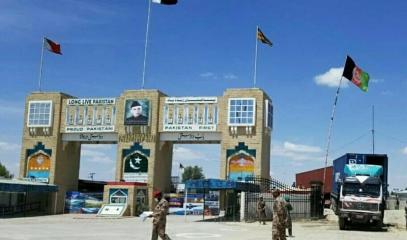Sky-high prices and shortages of goods due to border closures between Pakistan and Afghanistan
The border closure has triggered a spike in the cost of basic items. The price of tomatoes jumped fivefold since the start of the month. An official admits: "We have no information” about when the border will reopen. A meeting between the two sides on Sunday is eagerly awaited.
Islamabad (AsiaNews) – The closure of the border between Pakistan and Afghanistan, for almost a fortnight with inevitable diplomatic repercussions, has also triggered a price crisis in both countries, with widespread increases, particularly in the cost of necessities.
This is the case for tomatoes, which are now five times more expensive in Pakistan since fighting broke out between the two neighbours earlier this month, abruptly halting trade and cross-border traffic.
Borders have been closed since 11 October, following Pakistani airstrikes and ground fighting along the 2,600-kilometre border, which left scores of people dead on both sides.
Relations between the two countries have been volatile since the Taliban returned to power in August 2021 following the withdrawal of US-led NATO forces.
For years, Islamabad has accused Kabul of protecting and financially supporting the Pakistani Taliban. The latter want to set up an Islamic Emirate in Pakistan modelled after that of Afghanistan and to this end they have targeted public infrastructure.
Although the year is not over yet and a fragile truce was reached last week, 2025 is likely to end with the highest casualties for Pakistani security forces ever recorded.
When former Prime Minister Imran Khan was in power (2018-2022), he attempted in vain to reach a ceasefire agreement with the Tehrik-i Taliban Pakistan (TTP), over which the Afghan Taliban claim to have no control.
“We have no information when the border with Afghanistan will be opened,” a senior official in Chaman said.
Although merchants and those involved in imports and exports are calling for the border to be reopened, no decision has been made so far, he added.
The outbreak of fighting halted all trade as well as vehicular and human transit, Khan Jan Alokozay, head of the Pakistan-Afghan Chamber of Commerce in Kabul, told Reuters yesterday.
“With each passing day, both sides are losing around million,” he lamented.
Fresh fruits, vegetables, minerals, medicines, wheat, rice, sugar, meat, and dairy products make up the bulk of the trade between the two countries, with a total annual value of some US$ 2.3 billion.
The price of tomatoes, widely used in Pakistani cuisine, has increased by more than 400 per cent to around 600 rupees per kilo. Apples, which come mainly from Afghanistan, are also experiencing price increases.
About 5,000 containers of goods are stuck on both sides of the border, a Pakistani administration official at the main border crossing in Torkham reported. This explains the shortage of tomatoes, apples and grapes in local markets.
Faint hopes of reopening the border are pinned on a meeting on Sunday between Pakistani and Afghan officials, when the two parties will decide on what to do following the recent clashes.
“The trade and business activities between Pakistan and Afghanistan will be restored under what will be the outcome of the Istanbul review meeting,” Imran Khan Kakar, a leading businessman, told the Dawn newspaper.
Border authorities reopened the Friendship Gate for a limited period to allow Afghan refugees to go home, after they reached Chaman from various parts of Balochistan and Karachi.
The activities of the Federal Investigation Agency (FIA) immigration section have been suspended, with people travelling to Afghanistan with visas and passports stuck in Chaman due to the border closure.
“Over 5,000 Pakistanis are stranded in Spin Boldak as they visit there and Vesh on a daily basis for their small businesses,” a FIA official said.
According to Pakistani customs officials, more than a thousand trucks carrying goods in transit, exports, and imports are stranded because customs clearance has been halted following what Pakistan described as Afghanistan’s “unprovoked aggression”.
The disruption follows the suspension of operations at major border crossings, including Torkham, Ghulam Khan, Kharlachi, and Angoor Adda on 12 October, and at the Chaman border crossing on 15 October.
Lastly, the Torkham border remains severely congested with 255 export vehicles and 24 import vehicles waiting at the terminal. Another 200 lorries, stranded along the Jamrud-Landi Kotal road, are also awaiting customs clearance.
By contrast, traffic at the Chaman border is relatively light with 25 export vehicles and five import vehicles still awaiting customs clearance.
To mitigate disruption and ensure the continued availability of essential goods, border authorities in the northern region have proactively cleared shipments that arrived before the border closure.
12/11/2025 18:04
04/01/2022 15:55
19/09/2023 19:04








.png)










